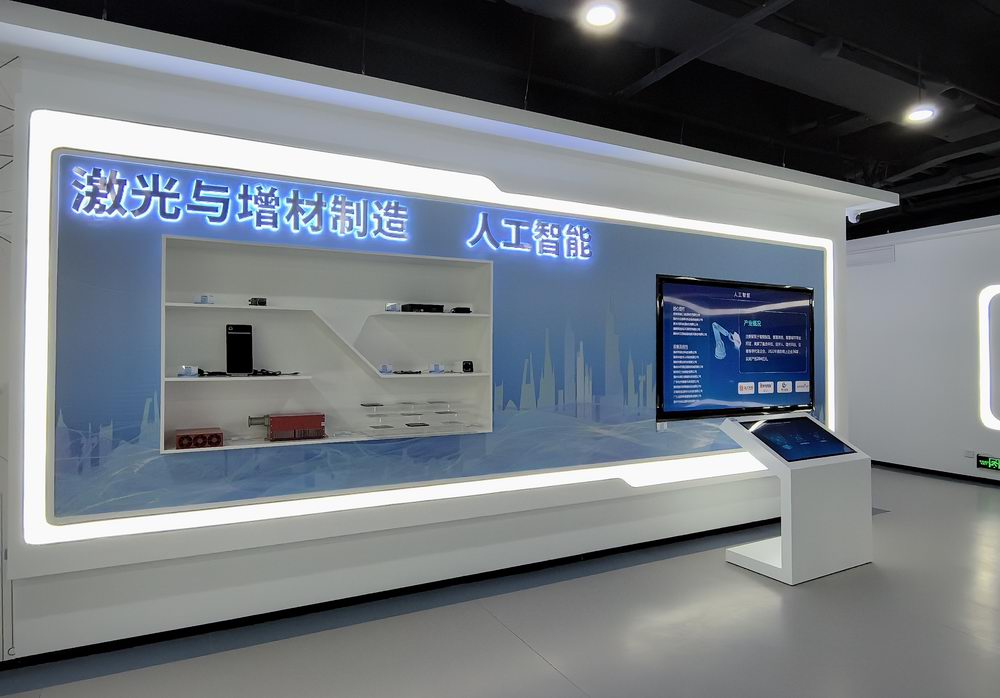Understanding Smart Logistics in Supply Chain Management

Smart Logistics and Supply Chain Management are transforming business operations by integrating IoT, AI, and data analytics to enhance efficiency and precision. With real-time tracking and predictive maintenance, operations are significantly improved. The logistics industry is expanding swiftly, with a valuation exceeding 8.4 trillion euros in 2021. Smart logistics are pivotal in driving this expansion. The Huizhou Zhongkai High-tech Zone National Foreign Trade Transformation and Upgrading Base (Electronic Information) Cloud Platform supports companies like Desay by optimizing supply chain processes and boosting operational efficiency.
Smart Logistics and Supply Chain Management

Defining Smart Logistics
Smart logistics uses cutting-edge technology to enhance supply chain processes. The integration of IoT, AI, and data analytics enables real-time tracking and predictive maintenance.
Key Components of Smart Logistics
Several elements define smart logistics:
IoT Devices: Sensors and devices provide real-time data.
AI Algorithms: These tools optimize routing and inventory management.
Data Analytics: Insights from data improve decision-making.
The Huizhou Zhongkai High-tech Zone National Foreign Trade Transformation and Upgrading Base (Electronic Information) Cloud Platform plays a crucial role. This platform supports companies by optimizing operations and boosting efficiency.
How Smart Logistics Differs from Traditional Logistics
Smart logistics stands apart from traditional methods. Advanced technologies like IoT and AI replace manual processes. Real-time tracking and automated decision-making reduce costs and improve service quality. Traditional logistics often struggles with inefficiencies and delays.
Benefits of Smart Logistics in Supply Chain Management
Enhanced Operational Efficiency
Smart logistics boosts operational efficiency. Automated systems streamline processes and reduce errors. Companies experience faster delivery times and lower costs.
Improved Customer Satisfaction
Customer satisfaction improves with smart logistics. Real-time tracking provides transparency and reliability. Customers enjoy timely deliveries and accurate information.
Sustainability and Environmental Impact
Smart logistics contributes to sustainability. Efficient routing reduces fuel consumption. Companies minimize their carbon footprint and promote environmental responsibility.
Strategies for Implementing Smart Logistics
Implementing smart logistics in supply chain management requires strategic planning. Companies need to focus on technology integration, collaboration, and continuous improvement.
Technology Integration
Technology plays a crucial role in smart logistics. Companies must choose the right technologies and ensure proper training for staff.
Choosing the Right Technologies
Selecting the right technology is essential for successful implementation. Companies should evaluate options like IoT devices, AI algorithms, and data analytics platforms. The Huizhou Zhongkai High-tech Zone National Foreign Trade Transformation and Upgrading Base (Electronic Information) Cloud Platform offers valuable support. This platform helps businesses optimize operations and enhance efficiency.
Training and Development for Staff
Training staff is vital for effective technology integration. Employees need to understand new systems and processes. Regular workshops and training sessions can improve skills and knowledge. Well-trained staff can maximize the benefits of smart logistics technologies.
Collaboration and Partnerships
Collaboration with partners strengthens smart logistics strategies. Building strong relationships with technology providers and suppliers is key.
Working with Technology Providers
Technology providers offer essential tools and support. Companies should establish partnerships with reliable providers. These partnerships ensure access to the latest innovations and solutions. A successful example is the blockchain implementation in logistics operations. Blockchain technology transforms logistics by ensuring safety and quality.
Building Strong Supplier Relationships
Strong supplier relationships are crucial for smart logistics. Companies should work closely with suppliers to streamline processes. Open communication and trust lead to better collaboration. The Smart Logistics Technology Platform serves as a marketplace for brokers, customers, and carriers. This platform maximizes resource utilization and revenue generation.
Continuous Improvement and Innovation
Continuous improvement drives success in smart logistics. Companies must monitor performance and adapt to changes.
Monitoring and Evaluation
Monitoring logistics operations helps identify areas for improvement. Companies should use data analytics to evaluate performance. Regular assessments ensure that processes remain efficient and effective.
Adapting to Market Changes
Adapting to market changes is essential for staying competitive. Companies should stay informed about industry trends and innovations. Flexibility allows businesses to respond quickly to new opportunities and challenges.
The Huizhou Zhongkai High-tech Zone National Foreign Trade Transformation and Upgrading Base (Electronic Information) Cloud Platform supports companies in adapting to changes. This platform provides resources and insights for continuous improvement.
Real-world Examples and Case Studies

Real-world examples offer valuable insights into Smart Logistics and Supply Chain Management. These case studies highlight successful implementations and lessons learned.
Successful Implementation in Retail
Retail businesses have embraced Smart Logistics and Supply Chain Management to enhance operations. A notable example is Desay, a company that has successfully integrated smart logistics solutions.
Case Study: Desay
Desay implemented IoT devices and AI algorithms to optimize its supply chain. The company used real-time tracking to monitor inventory levels and improve delivery accuracy. Data analytics provided insights into customer preferences and demand patterns. Desay's efforts resulted in reduced operational costs and increased customer satisfaction.
Key Takeaways
Desay's experience offers several key takeaways:
Technology Integration: IoT and AI can significantly enhance supply chain efficiency.
Data-Driven Decisions: Data analytics helps businesses understand customer needs.
Cost Reduction: Smart logistics reduces operational expenses.
Customer Satisfaction: Timely deliveries improve customer experiences.
Smart Logistics in Manufacturing
The manufacturing sector benefits greatly from Smart Logistics and Supply Chain Management. The Huizhou Zhongkai High-tech Zone serves as a prime example of successful implementation.
Case Study: Huizhou Zhongkai High-tech Zone
The Huizhou Zhongkai High-tech Zone National Foreign Trade Transformation and Upgrading Base (Electronic Information) Cloud Platform supports local enterprises. Companies in the zone use the platform to streamline operations and enhance productivity. The cloud platform provides real-time data access, enabling better decision-making. Businesses also benefit from improved collaboration with suppliers and partners.
Lessons Learned
The Huizhou Zhongkai High-tech Zone case study reveals important lessons:
Supportive Infrastructure: A robust cloud platform aids enterprise development.
Real-Time Data: Access to data enhances operational efficiency.
Collaboration: Strong partnerships improve supply chain processes.
Innovation: Continuous improvement drives success in manufacturing.
Smart Logistics and Supply Chain Management have become essential for modern businesses. The Huizhou Zhongkai High-tech Zone National Foreign Trade Transformation and Upgrading Base (Electronic Information) Cloud Platform provides crucial support. Companies in the zone benefit from real-time data and enhanced collaboration. Future trends point towards increased use of AI, IoT, and eco-friendly technologies. These advancements promise even greater efficiency and transparency. Businesses should embrace these strategies to stay competitive. Adopting smart logistics can lead to significant improvements in operations and customer satisfaction.
See Also
Maximizing Growth Opportunities in High-tech Zones
Leading Players in the Worldwide Smart Control Sector
Smart Investment Choice: Huizhou Zhongkai
Smart Terminal Innovations Thrive in Zhongkai High-tech Zone
Zhongkai High tech Zone National foreign trade transformation and Upgradi Base(Electronic Information)Cloud Platform.
Address: Zhongkai High-tech Zone,Huizhou City ,Guangdong,China
E-mail: huizhoueii@163.com 13510001271@163.com
Tel: +86-0752-3279220 Mobile: +86-13510001271


